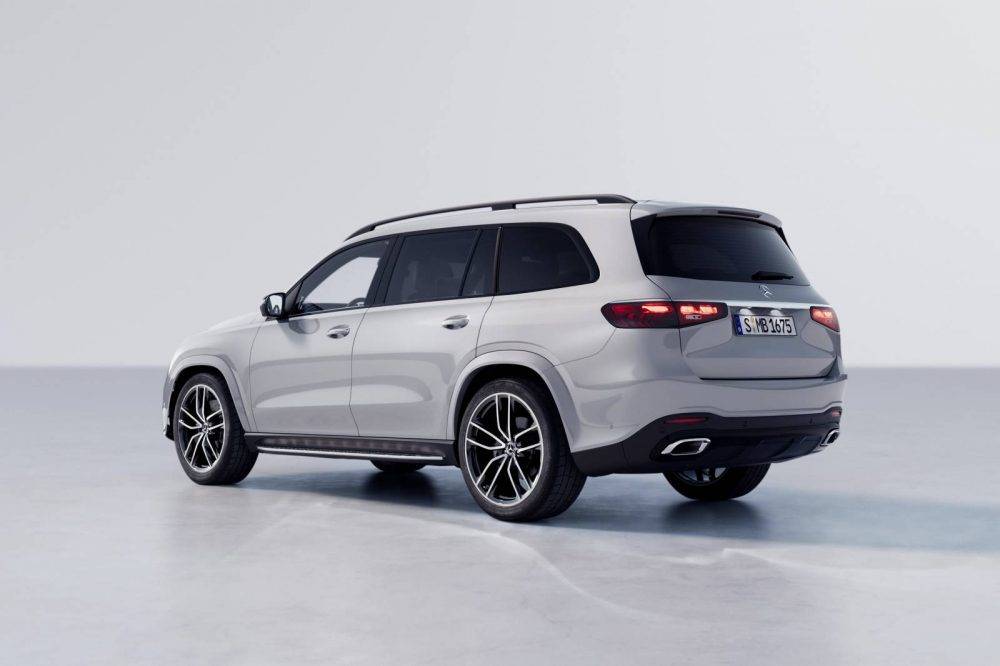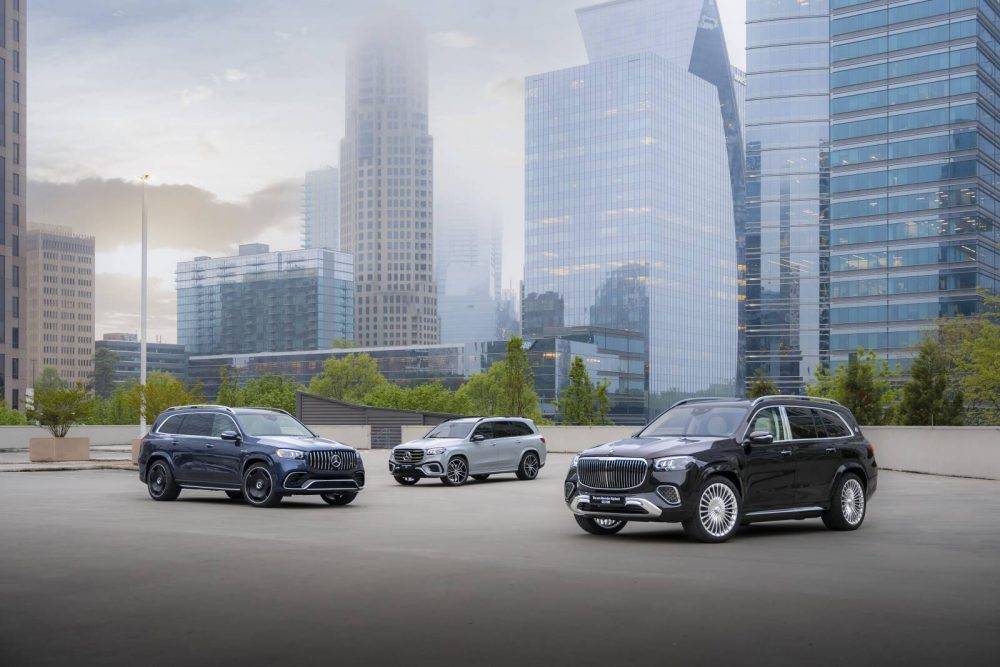Mercedes-Benz has taken a knife to its GLS, updating the luxury vehicle. But it is still diesel-propelled and remains remarkably similar to the GLE, which is only R127 000 less than the GLS 450d.
Merc’s most opulence-focused SUV, the GLS, or the S-Class of SUVs as it’s known in some circles, has seen a welcome update as it seeks to re-establish its luxury standing amid a strong emergence from its rivals. Here’s the kicker, though: it continues to embrace diesel, a propulsion method that’s been largely outlawed in its Deutsche homeland with its bread-and-butter offering, the 450d.
Although diesel is far from obsolete in the local context, there’s a GLS-sized elephant in the room, and that’s the overall placement of the GLS in the locally available range, so let’s kick this report off with that. The priciest GLE, the 450 4Matic AMG Line in its base trim, is only R127 000 less than the entry-level GLS 450d. That sum equates to an impulsive tick or two on the online configurator, and suddenly the junior deputy is more “exclusive” than what is supposed to be Merc’s flagship range.

But money is no object
Although it’s true that buyers of the GLS can upgrade their GLS to higher echelons on the configurator, it’s important to note that the models appear remarkably similar, almost complementing each other rather than standing out from each other. Whether Mercedes-Benz has inadvertently created a GLS-rivalling GLE or not done quite enough with the GLS remains open to individual interpretation. Still, the point is that on the relative sedan front, there’s always been a considerable chasm between the E-Class and S-Class and similarly between the EQE and EQS SUVs.
Where is the S-Class shine?
For one, the GLS measures 5 207mm, making it 283mm longer than the GLE. Its 3 135mm wheelbase measures 140mm more, with the added benefit of improved cabin space — not that there’s a shortage of that in the GLE — and it comes with seven seats as standard, as opposed to the option of adding two seats in the GLE. Given that space is one part of the luxury equation associated with the S, in whichever designation or configuration it may be, the GLS certainly nailed that brief.
While the interior look and feel are largely reminiscent of the smaller GLE, it is airy and luxurious, with thoughtful finishes at all major focal and physical touch points. The curved display that houses both the driver display and infotainment system is a familiar addition by now, but still impressive in how it projects information and entertainment displays. Also, the GLS now has the sporty, three-spoke steering wheel that also rolled out with the GLC and GLE. As far as the haptic buttons on these are concerned, I stand by my assessment of the controls on the GLC following an extensive test, because it’s too unresponsive and binary for accurate control of the cruise control and volume.
Then there are the options. If the standard specification is too middle-of-the-road for your liking, Merc now allows buyers to specify their GLS with the Manufaktur black gloss-finish lacquer interior trim that was formerly only designated for the Mercedes-Maybach GLS. Our test unit, on the other hand, was specified with the classically-styled-meets-modern-minimalism Anthracite open-pore oak trim on the dashboard and centre tunnel that costs R7 800 on the options list.
All test units at the launch were specified with the AMG Line exterior package (R90 900), 21-inch five-spoke wheels at no additional cost, and, rather confusingly, a black fabric roof liner that costs R6 400.
How does it go?
Considering the 2 615kg bulk of the GLS 450d, surprisingly well. This is where the twin-turbo 3.0-litre diesel engine comes into its own with 285kW (15kW courtesy of electric boost assistance) and 750Nm of torque, which by any measure is a lot. The 450d is rated for a 0-100km/h sprint of 6.1 seconds, while it will only run out of steam at its 250km/h limiter. As for the GLS 580 and GLS 63 petrol variants, neither of which we sampled, they are rated at 380kW and 730Nm (GLS 580) and 450kW and 850Nm (GLS 63).
The drivability department is where it shines. It’s easy to forget that this is a five-metre+ luxury SUV tipping the scales at well over two tonnes. The powertrain is responsive, the steering is agile, doing an excellent job of translating the road surface, and the general composure through the twists allows for plenty of driver engagement.
On a side note, and at the far end of the luxury spectrum, lives the Mercedes-Maybach GLS 600, which we previewed at the launch with the familiar 4.0-litre twin-turbo engine producing 410kW and 770Nm of torque. It performs the 0-100km/h sprint in a scant 4.9 seconds, while it too is limited to 250km/h of terminal velocity. So, it should have plenty of go to accompany its unique luxury disposition, taking everything to the nth degree.

To GLS …
Despite my reservations about Merc’s placement of the GLS, and more specifically, the GLS 450d, in its product portfolio, it adopts several of the qualities that make the sedan it draws its name from such a special product. Sure, it doesn’t have the same name equity and perceived grandeur as the S-Class. Still, with seven seats as standard, more usable space and soft roading abilities with a decent measure of ground clearance, it certainly stands tall with a lot more versatility — and isn’t that the point of an SUV?
In essence, though, the 450d we sampled, and by extension the other models in the line-up, balances traditional appeal with a modern luxury ethos in a motoring landscape that’s seeing a significant shift towards electrification.
Pricing
• Mercedes-Benz GLS 450d: R2 304 700
• Mercedes-Benz GLS 580: R2 840 600
• Mercedes-Maybach GLS 600: R4 500 000